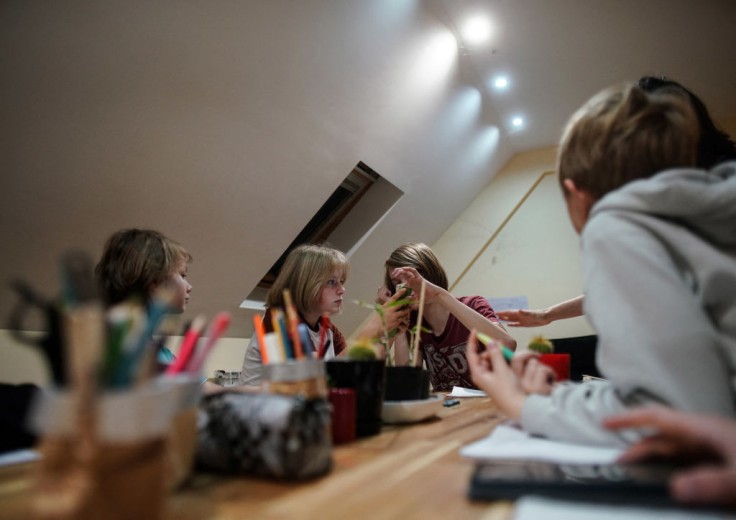
In a world inundated with instant gratification, relentless advertisements, and social media comparisons, fostering gratitude in children can often feel like a Herculean task.
While it's natural for children-and adults, for that matter-to want more, teaching the art of contentment and thankfulness is essential for a lifetime of happiness and well-being.
Positive parenting isn't just about discipline or education; it's also about instilling virtues, and gratitude is one of them.
With that, let's explore why gratitude matters, how it contributes to developing a thankful heart in children, and offer practical tips for cultivating gratitude at home.
What is Gratitude, and Why Does It Matter?
Gratitude is not just the act of saying "thank you"; it's a much deeper emotional and cognitive state that involves recognizing and appreciating what we have and what others do for us.
Studies have shown that gratitude is linked to numerous mental and physical health benefits, including reduced stress, increased happiness, and even a stronger immune system.
For children, learning to be grateful can have long-lasting impacts on their emotional intelligence.
A thankful heart is more likely to empathize with others, exhibit patience, and show kindness-all attributes that are integral to becoming a well-rounded individual.
Furthermore, cultivating gratitude as a part of positive parenting helps children build better relationships-not just with family members but also with peers and future colleagues.
The Role of Positive Parenting in Cultivating Gratitude
Positive parenting isn't just a buzzword; it's a methodology that encourages parents to foster a positive emotional environment where children can thrive.
One of the key aspects of positive parenting is teaching children how to deal with their feelings, and gratitude plays a vital role in this.
Teaching kids to acknowledge and appreciate what they have, rather than constantly striving for more, sets the stage for a more content and fulfilling life.
Here's how you can incorporate the ethos of positive parenting into cultivating a thankful heart:
Open Dialogues
Children are naturally curious and have questions about everything. Use this as an opportunity to initiate conversations about gratitude. Discuss what it means to be thankful, provide examples, and encourage them to share what they are grateful for.
Model Behavior
Children often imitate adults. If they see you expressing gratitude regularly-thanking a waiter, showing appreciation to a family member, or simply being thankful for a beautiful day-they are more likely to adopt a similar attitude.
Create Rituals
Develop rituals around gratitude, such as sharing what you are grateful for at the dinner table, or keeping a family 'Gratitude Journal'. These practices make gratitude a tangible part of daily life.
Practical Tips for Cultivating Gratitude at Home
Creating a home environment that encourages gratitude doesn't require a complete lifestyle overhaul. Simple changes can make a big difference in shaping a thankful heart. Here are some practical tips for cultivating gratitude at home:
Mindful Giving
Involve your children in the process of giving, whether it's donating clothes, participating in community service, or making a homemade gift for a family member. This creates an opportunity to discuss why giving is important and how it makes them feel, further instilling the concept of gratitude.
Positive Reinforcement
When your child shows any sign of gratitude, reinforce this behavior with praise. This not only shows that you value gratitude but also encourages your child to continue being grateful.
Count Your Blessings
Encourage your children to think about the good things in their lives, however small. This could be as simple as enjoying a sunny day or being excited about a weekend outing. The aim is to make them realize that happiness often lies in the little things, fostering a thankful heart.
Teach Through Experience
Sometimes the best lessons are learned through experience. Let your child feel disappointment, but guide them toward finding a silver lining or a lesson learned. This helps shift the focus from what is lacking or negative to finding something to be grateful for.
Cultivating a thankful heart in your child is a rewarding endeavor that pays lifelong dividends.
Not only does it improve emotional well-being, but it also leads to stronger relationships and a happier, more fulfilling life.
By integrating the principles of gratitude into your positive parenting approach, you're not just teaching your child to say 'thank you'-you're giving them a tool to appreciate life in its entirety.
Remember, the goal isn't to create a child who is perpetually happy or content; rather, it's to instill a mindset of gratitude that allows them to face the highs and lows of life with resilience and grace.
By focusing on gratitude and its crucial role in positive parenting, you're laying the foundation for your child to become a compassionate, appreciative, and emotionally intelligent individual.
Related Article: Snooze Smart: How Parents Can Ensure Optimal Sleep for Their Teens